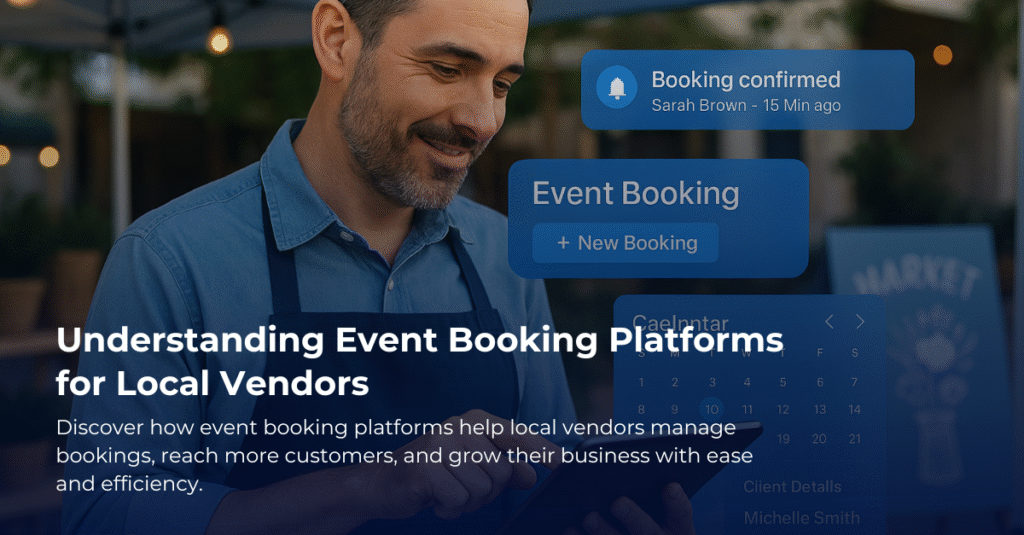Understanding Event Booking Platforms for Local Vendors
Have you ever tried to coordinate an event, only to find yourself drowning in a sea of emails, phone calls, and calendar invites? You’re not alone. Many people think organizing events is straightforward, but it can quickly become a logistical nightmare. This is where an event booking platform can come in handy, especially for local vendors looking to streamline their operations.
What is an Event Booking Platform?
Simply put, an event booking platform is a digital tool that allows users to discover, book, and manage various events and services online. Imagine you are planning a wedding. Instead of calling multiple caterers, photographers, and venues, you could visit one site to see all available options and make bookings directly. It saves time and effort for everyone involved.
Why Should Local Vendors Consider This?
As a local vendor, having an event booking platform can help expand your reach. Instead of relying solely on word of mouth or social media, you can use this platform to showcase your services to potential customers actively searching for them. This isn’t just about convenience; it’s about ensuring that your business gets the exposure it deserves.
The Basics of Developing an Event Booking Platform
If you’re considering developing an event booking platform, here are some key points to keep in mind:
- User-Friendly Interface: The platform should be easy for users to navigate. Think of how you feel when you land on a complicated website. Frustrating, right? Your goal is to create a smooth experience where users can easily find and book services.
- Search Functionality: Users should be able to filter their options based on date, type of service, or location. The easier it is for them to find what they need, the more likely they are to make a booking.
- Secure Payment Methods: Integrating secure payment options is crucial. Customers want to feel safe providing their financial details online. Consider options like credit cards, PayPal, or even local payment solutions that your audience trusts.
- Vendor Profiles: Each vendor should have a dedicated profile showcasing their services, photos, and reviews. This helps customers make informed decisions based on past experiences.
- Marketing Tools: Including built-in marketing tools can help local vendors promote their services. Consider email marketing features or social media sharing options to get the word out.
Real-World Examples
Let’s take a look at how some businesses are already using event booking platforms. For instance, a local florist might use such a platform to allow users to book floral arrangements for different events like weddings or corporate functions. Instead of waiting for customers to call, they can fill out a form online, choose what they need, and make an appointment, leading to increased sales and fewer missed opportunities.
Similarly, consider a community center that hosts various classes and events. An event booking platform could let users see available classes, book their spots, and even handle payments all in one place. For the center, this means less administrative work and more focus on delivering quality programs.
Conclusion
Developing an event booking platform is more than just a digital solution. It can empower local vendors to reach new customers and improve their operational efficiency. If you’re contemplating creating one, focus on the user experience, security, and providing valuable information. It could make a significant difference for both the vendors who use it and the customers who rely on it. So, are you ready to turn that idea into reality?








